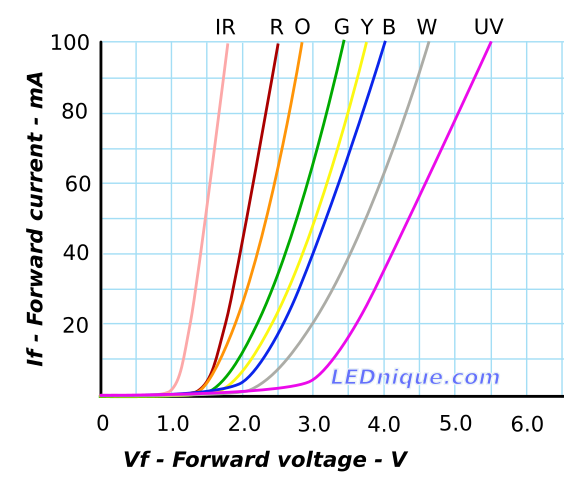Sirs, explain to me, stupid, how can LEDs (D1-D2) work in this programmer circuit with such a high resistance of voltage-dropping resistors R8-R9? After all, with a normal typical current of 20 mA LEDs, a voltage of as much as 44 volts should drop on each voltage-dropping resistor with a resistance of 2.2 kOhm, according to Ohm's law! (V=IR=0.02A2200ohm=44v) Where does such a high voltage come from in this circuit? In my opinion, the outputs of RA1-RA2 cannot have a voltage of more than 5 volts, which means that, for example, for a white or blue LED (on which the voltage usually drops 3.2 volts at a current of 20 mA), 1.8 volts must be dropped on the voltage-dropping resistor, and if Mr. Ohm was right, then this resistor musts have a resistance of 90 ohms (R=1.8v/0.02A=90ohm). Yes, I understand that in Mr. Ohm's time there were no electronic programmers yet, so Ohm's law may not apply to their circuits. However, putting aside the jokes, I would like to know where the error in my reasoning lies?
Sorry for my bad English - it's not me, but the electronic translator to blame :)
Any LED is a bipole with a certain IV curve, like this:
As you can see it keeps a significant forward voltage even at 1.5mA.
If you would like to refer to this comment somewhere else in this project, copy and paste the following link:
Anonymous
Anonymous
-
2024-09-07
Grazie mille per la spiegazione così visiva. I dati che hai fornito corrispondono molto bene ai risultati che ho ricevuto: ho misurato specificamente la corrente attraverso alcuni LED che ho a varie tensioni di alimentazione - e si è scoperto che molti LED iniziano a brillare già a una corrente di 0,8 mA! Ora tutto è diventato chiaro per me. Grazie ancora per aver risposto alla mia domanda.
If you would like to refer to this comment somewhere else in this project, copy and paste the following link:
Sirs, explain to me, stupid, how can LEDs (D1-D2) work in this programmer circuit with such a high resistance of voltage-dropping resistors R8-R9? After all, with a normal typical current of 20 mA LEDs, a voltage of as much as 44 volts should drop on each voltage-dropping resistor with a resistance of 2.2 kOhm, according to Ohm's law! (V=IR=0.02A2200ohm=44v) Where does such a high voltage come from in this circuit? In my opinion, the outputs of RA1-RA2 cannot have a voltage of more than 5 volts, which means that, for example, for a white or blue LED (on which the voltage usually drops 3.2 volts at a current of 20 mA), 1.8 volts must be dropped on the voltage-dropping resistor, and if Mr. Ohm was right, then this resistor musts have a resistance of 90 ohms (R=1.8v/0.02A=90ohm). Yes, I understand that in Mr. Ohm's time there were no electronic programmers yet, so Ohm's law may not apply to their circuits. However, putting aside the jokes, I would like to know where the error in my reasoning lies?
Sorry for my bad English - it's not me, but the electronic translator to blame :)
What tells you that the current is 20mA?
I=(V-Vled)/R=(5-1.8)/2.2k=1.45mA
The passport data of the LED, as well as those measured by me in a practical scheme: The current is 20mA with a voltage drop of 3.2 volts.
Any LED is a bipole with a certain IV curve, like this:

As you can see it keeps a significant forward voltage even at 1.5mA.
Grazie mille per la spiegazione così visiva. I dati che hai fornito corrispondono molto bene ai risultati che ho ricevuto: ho misurato specificamente la corrente attraverso alcuni LED che ho a varie tensioni di alimentazione - e si è scoperto che molti LED iniziano a brillare già a una corrente di 0,8 mA! Ora tutto è diventato chiaro per me. Grazie ancora per aver risposto alla mia domanda.